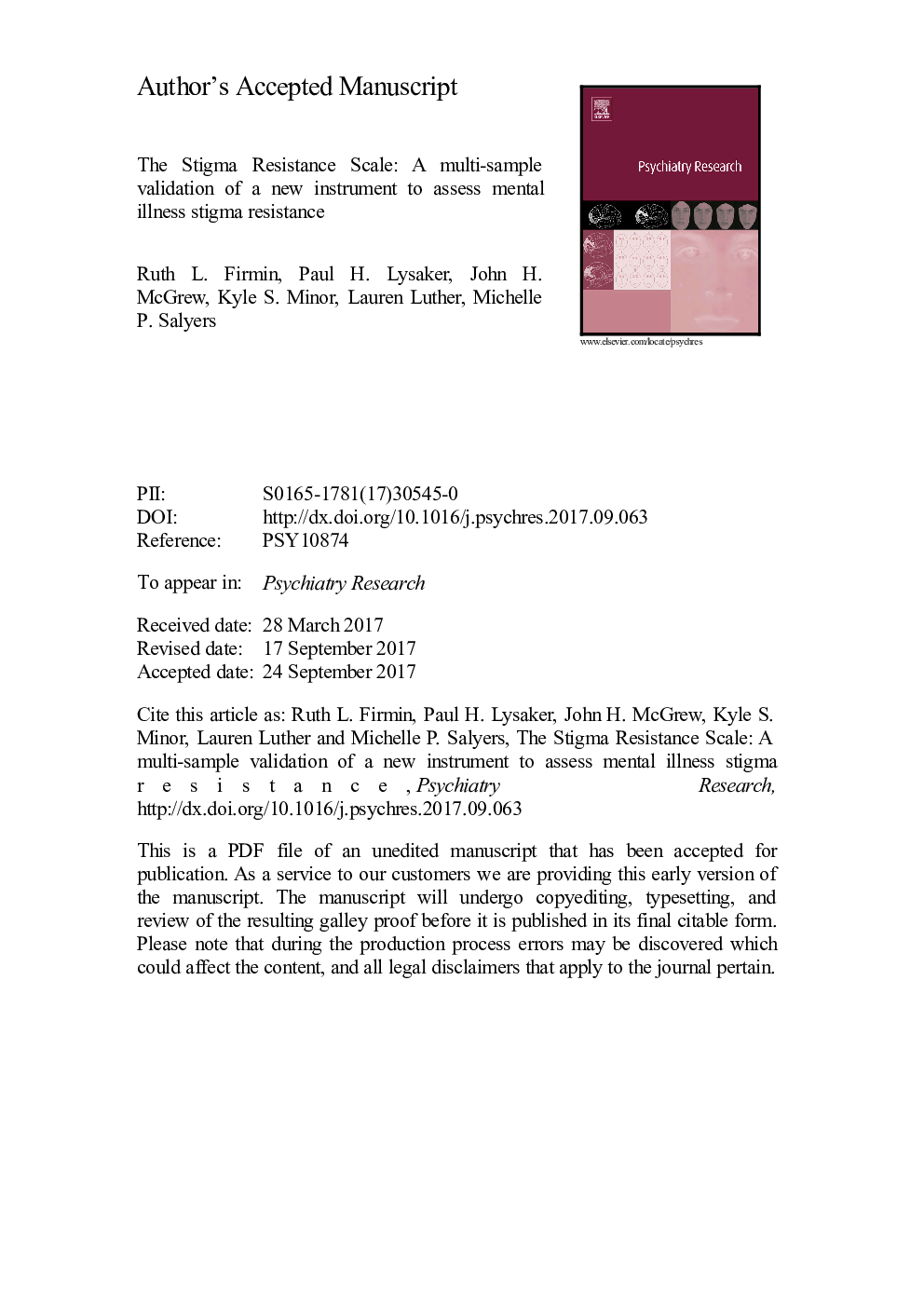| Article ID | Journal | Published Year | Pages | File Type |
|---|---|---|---|---|
| 4933241 | Psychiatry Research | 2017 | 27 Pages |
Abstract
Although associated with key recovery outcomes, stigma resistance remains under-studied largely due to limitations of existing measures. This study developed and validated a new measure of stigma resistance. Preliminary items, derived from qualitative interviews of people with lived experience, were pilot tested online with people self-reporting a mental illness diagnosis (n = 489). Best performing items were selected, and the refined measure was administered to an independent sample of people with mental illness at two state mental health consumer recovery conferences (n = 202). Confirmatory factor analyses (CFA) guided by theory were used to test item fit, correlations between the refined stigma resistance measure and theoretically relevant measures were examined for validity, and test-retest correlations of a subsample were examined for stability. CFA demonstrated strong fit for a 5-factor model. The final 20-item measure demonstrated good internal consistency for each of the 5 subscales, adequate test-retest reliability at 3 weeks, and strong construct validity (i.e., positive associations with quality of life, recovery, and self-efficacy, and negative associations with overall symptoms, defeatist beliefs, and self-stigma). The new measure offers a more reliable and nuanced assessment of stigma resistance. It may afford greater personalization of interventions targeting stigma resistance.
Related Topics
Life Sciences
Neuroscience
Biological Psychiatry
Authors
Ruth L. Firmin, Paul H. Lysaker, John H. McGrew, Kyle S. Minor, Lauren Luther, Michelle P. Salyers,
